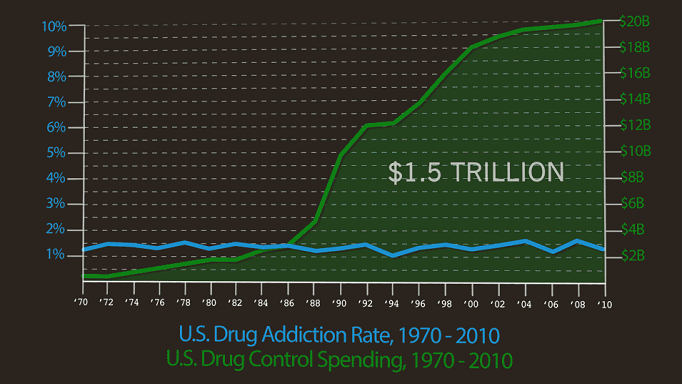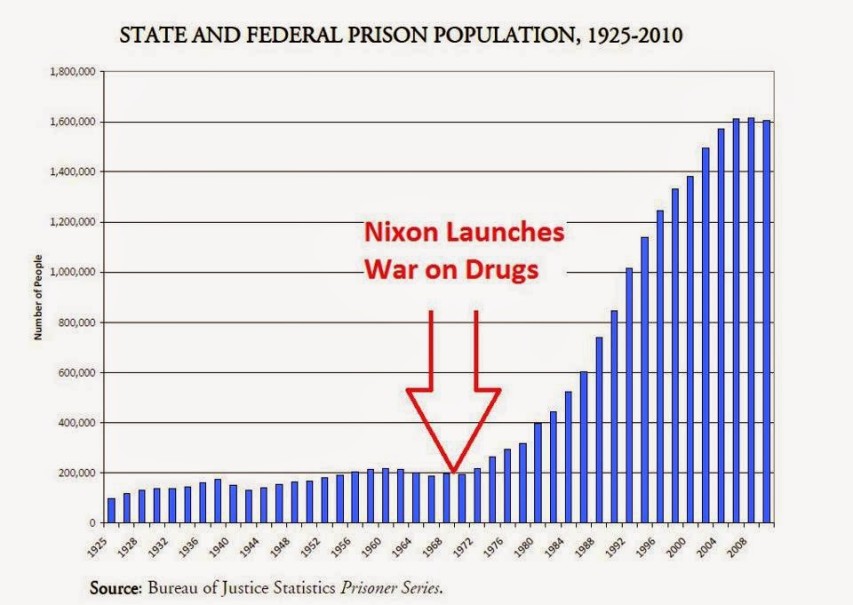I saw this on Google+ and thought the two graphics included in the post were interesting enough to present on their own — because they pretty much tell the whole story in a glance:
In 1969, the prison population was 200,000 and the overall population was about 200 million people. This means that approximately 0.1% of all Americans were in prison in 1969. As of 2010, the prison population had expanded to 1.6 million while the overall population was 309 million. Therefore, the current prison population is 0.5%. The prison population has expanded 5 times when adjusted for population size while the rate of drug addiction has remained largely constant. I do not believe that any reasonable person can look at the statistics on incarceration versus drug usage and come to any conclusion other than that the Drug War has been an immense cataclysm for the American people and that this cataclysm has fallen horrifically and disproportionately upon the poor. From a drug usage standpoint the inner cities have not improved in the slightest when it comes to overdoses and other tertiary consequences of drug use and we have simultaneously turned our inner cities into armed police states where the inhabitants are frequently terrified of the police, where the police engage in the worst sorts of paramilitary tactics, and where a large portion of young men are hurled into prison cells and ruined in the prime of their lives.
But none of these bourgeoisie facts and evidence shall deter Mr. Walters from his noble, righteous quest! No, he knows the evils of marijuana which shall be visited disproportionately upon the poor, and he will not rest until such toxins are driven entirely from the field:
The focus on marijuana legalization trades on the public perception that the drug does little damage, and hence, that any criminal justice penalty for its use is an unnecessary affront. In fact, marijuana use does serious harm, and its legalization promises more use by the most vulnerable in communities like Angela Dawson’s Oliver neighborhood.
Personally, and I do realize this would shock Mr. Walters, I actually don’t care how damaging marijuana is to its users. Provided its users are of legal age and therefore are capable of consenting to its use, whether or not it is ‘damaging’ is of no relevance to me — consuming massive quantities of sugar is damaging, large amounts of fat is damaging, failure to exercise is damaging, drinking to excess is damaging — yet none of these are, or should be, illegal. Even if you prove the negative consequences of weed, it doesn’t matter — it is not the responsibility of the state to treat its citizens like children in need of mollycoddling and governmentally sponsored salvation and it certainly is neither the duty nor the purpose of the state to save us from the consequences of our own decisions.





